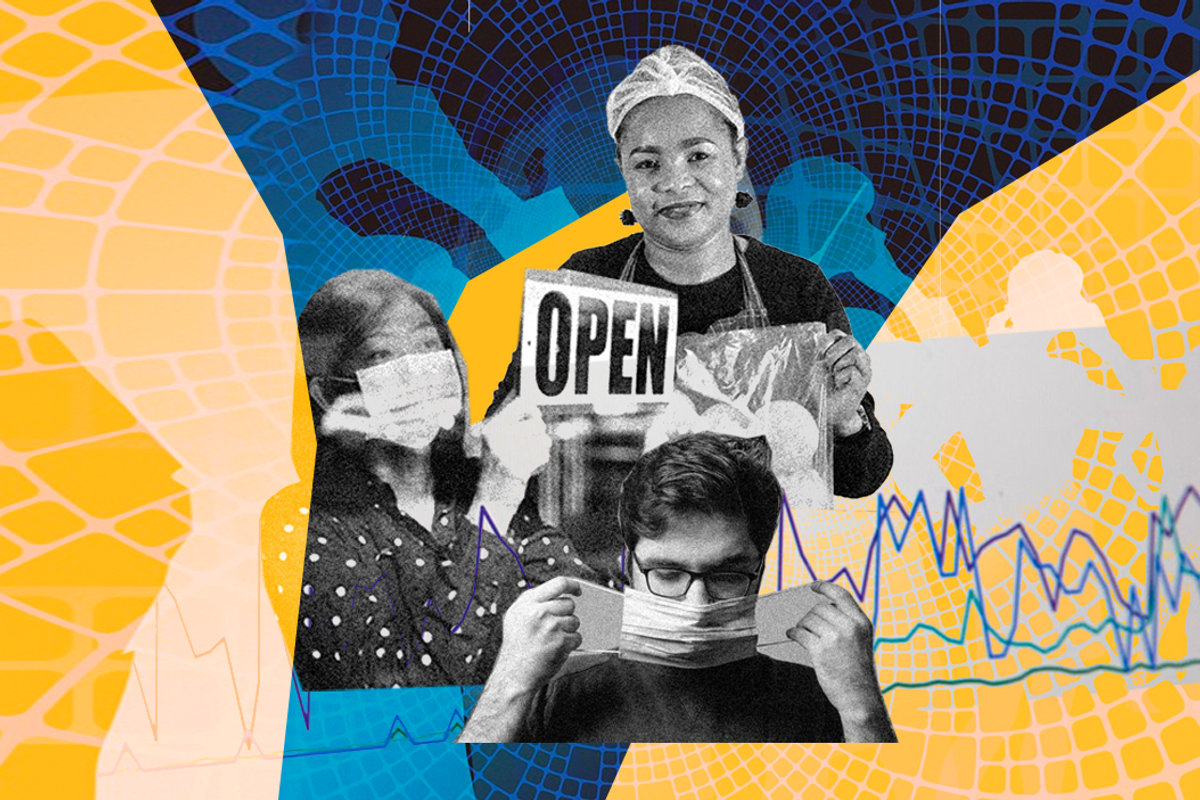Two years ago, life as we knew it came to a halt. COVID lockdowns hit businesses hard, forcing many beloved shops and restaurants to close. Today, with restrictions easing, the businesses that survived are equipped with the creative, innovative spirit that helped them weather the pandemic — and they’ll need it for the challenges that remain.
Optimism is high among small business owners in the US. Still, entrepreneurs coming out of the pandemic continue to face labor and supply chain shortages, as well as soaring inflation.
Small business owners in the US and UK tend to be optimistic, Jeni Mundy, Visa’s Global SVP Merchant Sales & Acquiring, said this week during a livestream conversation hosted by GZERO Media in partnership with Visa. Having changed their business models during COVID to survive, she explained, they’re now able to use their new e-commerce solutions to get ahead.
In fact, Visa’s surveys reflect that 90% of small businesses in nine different markets are optimistic about the future, up from 75% at the beginning of the pandemic.
But in Europe, soaring inflation, coupled with the war in Ukraine’s impact on energy costs, means small businesses may face new existential threats. As a result, optimism isn’t the prevailing mood on the continent. In fact, many small European business owners are worried.
Veronique Willems, secretary-general of SMEUnited, is very concerned. European business owners are faced with labor shortages, higher inflation, and supply issues — not unlike elsewhere — but now they need to account for rising energy bills and the uncertainty being caused by Russia’s war.
“The sentiment, let’s say, is big uncertainty at the moment,” Willems said.
Finding skilled staff was an issue before COVID. It’s even worse today, especially in sectors that have been shut down throughout the pandemic.
Sarah McKill, a 42-year-old Canadian living in Berlin, runs a café called Simply in Prenzlauerberg, where she’s served American and British-style breakfasts and sandwiches since 2013. Finding good people to employ has long been a struggle.
“Everyone says they’re desperate for a job, desperate for money and then completely flakes on it,” she says, noting that she’s had staffers of all ages and backgrounds.
The café became a community gathering spot throughout the pandemic, and McKill began training local teenagers to help out as needed. Side gigs helped her subsidize the cafe when revenues were down — she’s now pulling in about 60% of pre-COVID profits — and she weathered the pandemic with a bit of creativity and luck.
That included low rent, no heating costs, and a restaurant reliant on sustainable ingredients, such as eggs, flour, and potatoes. Cafés on the next street over, where perishable items dominated and rents skyrocketed, haven’t been so lucky: four have gone out of business since 2020.
As for supply chain issues, McKill makes do by substituting menu items as needed. But recent panic buying of sunflower oil in Berlin left shelves bare, so she made sure to stock up during a recent trip to Poland.
Sadly, not all European small businesses can adjust and stay afloat as easily as McKill and her community cafe. After two years of struggling to come through the pandemic, many business owners are now faced with a new threat to their livelihoods: runaway costs.
Despite her knack for survival, even McKill isn’t sure she’ll stick with her business much longer. Recent protests in the city on Sundays have hurt her weekend trade, forcing her to pick up more side work again just to make ends meet. Last Sunday, though, the weather was great, and the cafe was crowded, restoring a bit of hope. She reckons she’ll give it another six months to see how things go and to see whether the war in Ukraine inches any closer or drives up her operating costs.
“We’re kind of waiting for the echo,” McKill says, reflecting the limbo many European business owners find themselves in today.


















